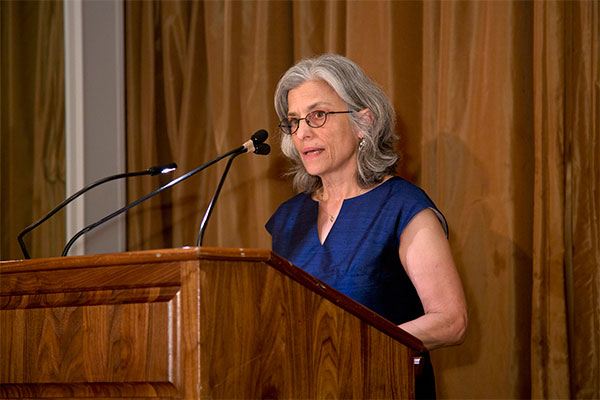
Joan Malin, the author
When Planned Parenthood of New York City sex educators have taught high school students in classrooms how to properly use condoms, one thing has been missing from the lessos: actual condoms.
Our educators are highly skilled and have provided education on proper condom use without actually conducting demonstrations, but they haven't been able to teach students using the most effective method. That is now changing—the city's Department of Health and Department of Education are now allowing condom demonstrations in high school classrooms as part of sex education. This is a positive step and a vital tool for learning—but it's not enough.
New York City's sexual health education must do much more to meet the needs of all students. The city's Department of Health and Department of Education recommend just one semester of sex ed in middle school and one in high school, but many students still aren't receiving even that minimum.
The young people most in need of affirming health education are often the least likely to receive it, compounding heath barriers they may already face. Too often, sex education is not properly implemented, and at this time there is not enough accountability around its implementation.
These gaps in the city's sexual education continue to have a significant impact on young people's wellbeing. Women aged 16 to 24 experience the highest rate of intimate partner violence, and 25 percent of 8th and 9th graders report having faced dating violence. In New York City schools, one in 10 teenagers reports having experienced physical or sexual violence in a dating relationship within the past year alone. Across New York City public schools, one in four students has been bullied because of their gender identity.
It's clear that New York City students could benefit from improved sex ed—but it must be comprehensive and cover more than the basic prevention lessons. For example, condom demonstrations in high school classrooms are a welcomed improvement and a vital tool for sexual health education, but this alone is not going to change these sexual violence and bullying statistics. Students should also be learning about LGBTQ sexual health, what a healthy relationship looks like, how to navigate consent, and how to have respect for one's own body and the bodies of others.
Numerous studies show positive youth development education is crucial to helping young people make health-promoting decisions, and that it also reduces school absenteeism and drop-out rates.
It's essential that students also learn how to negotiate condom use with a partner. Knowing how to properly use a condom may not be beneficial if students don't also have the skills to communicate with a partner the importance of using condoms and their expectations.
Sex education must be comprehensive, and it must also start early. We need to start talking to young people about healthy relationships way before they become sexually active. The National Sexuality Education Standards call for the teaching of identity, healthy relationships, and personal safety in K-5 education, recognizing that the most effective programs are those that teach young people how to communicate and make health-promoting decisions.
Parents have a vital role to play in ensuring their children get accurate, age-appropriate information about sexual and reproductive health, but school-based sex education is also essential. All young people need a community of "askable adults" they can go to with questions about relationships and sexual health, and unfortunately not every young person feels comfortable going to their parent or caregiver with these questions.
Parents in New York City want comprehensive sex ed in schools. In a recent survey of city voters, 85 percent want comprehensive sex education to be taught in schools, and 77 percent mistakenly think it is already part of the curriculum. We know that parents want sex ed, we know young people need it, and we know that it works.
The new city policy encouraging condom demonstrations in high schools is a positive change, and there's still more work to be done to improve New York City's sex education. Students need and deserve comprehensive, age-appropriate sex education in every school, kindergarten through 12th grade.
***
Joan Malin is President and CEO of Planned Parenthood of New York City




